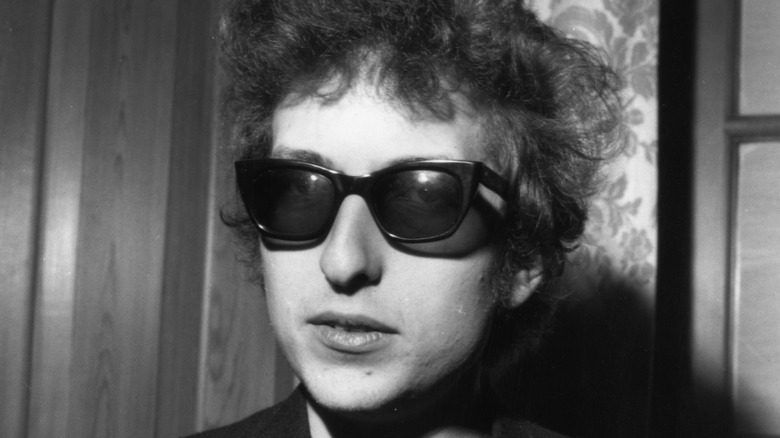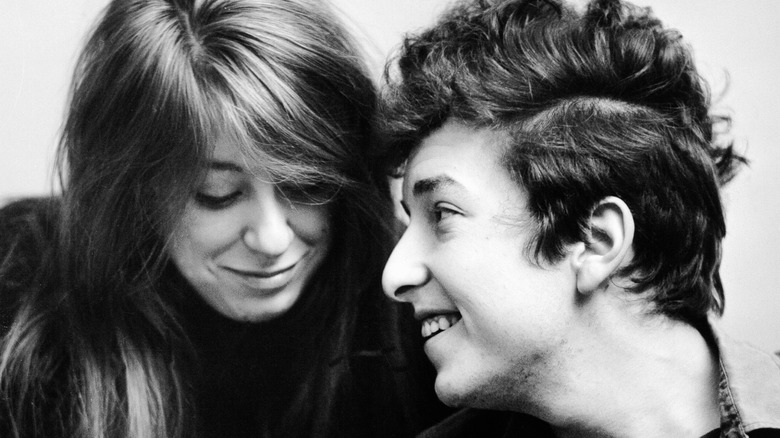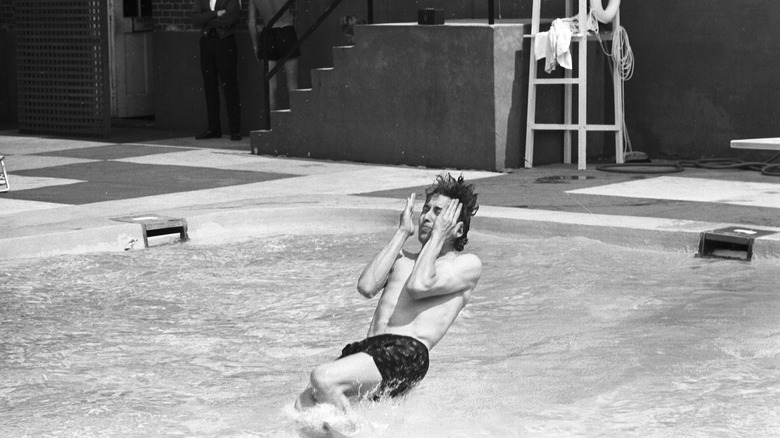The Hidden Meaning Behind Bob Dylan's My Back Pages
Writing and performing into his ninth decade, counterculture icon and Nobel Prize-winning lyricist Bob Dylan has managed to maintain an air of mystery. Despite his prolific output, he remains something of an enigma to his millions of fans around the world. Though he is never evasive, his lyrics have grown more cryptic as the years have passed, and as the title of one of the acclaimed singles from his 2020 comeback album "Rough and Rowdy Ways" confirms, Dylan "contains multitudes" — despite fans' familiarity with the musician who first rose to fame in the early 1960s, there is a sense that we can never be sure which Dylan is singing at any particular moment.
But Dylan's lyrical trickiness has had fans debating the exact meaning of some of his most famous songs since the early days, especially those songs that seem to be a critique of his own songwriting and artistry. One of these songs that have remained open to interpretation is "My Back Pages," a 1964 album track from "Another Side of Bob Dylan" — a title again suggestive of Dylan's multiplicity — which critics have argued constitutes a crucial turning point in Dylan's art.
Dylan was going through changes
"Another Side of Bob Dylan" was recorded in a single night on June 9, 1964, according to "Bob Dylan: prophet, mystic, poet," during a period of immense change in the young Dylan's life, as many of the lyrics on the album make clear. First, there was the break-up of his long-term relationship with his partner Suze Rotolo, who famously featured alongside the songwriter on the cover photo of "The Freewheelin' Bob Dylan." Dylan had indulged in an affair with Joan Baez during their time performing together, which was "devastating" to Rotolo, per Reuters.
Rotolo recalled in her memoir, "A Freewheelin' Time," that their relationship soon collapsed after she and Dylan agreed to terminate her pregnancy. The difficult end of their relationship was captured in "Ballad in Plain D," a song that has been panned by critics as self-pitying and which Dylan later regretted, per "Revolution in the Air: The Songs of Bob Dylan 1957-1973."
1964 was also the year that Dylan first started experimenting with writing under the influence of hallucinogenic drugs according to the Dylan biographer Bob Spitz, and while the sound nor the content of "Another Side of Bob Dylan" can be said to be psychedelic in the way music would sound in the late 1960s, it is arguable that the famous refrain of "My Back Pages" — "I was so much older then, I'm younger than that now" — is indicative of a new visionary strain in Dylan's songwriting as outlined by Literary Hub.
Taking a new direction
And while the famous refrain of Bob Dylan's "My Back Pages" does seem to suggest changes of one sort or another in Dylan's personal life, when taken in tandem with the song's vibrant choruses the lyric takes on another meaning: a critique of the protest movement of the early 1960s and Dylan's place within it.
As an October 1964 profile in The New Yorker explains, that year Dylan was growing increasingly uncomfortable with how synonymous he had become with the folk scene through which he first emerged, and the need espoused by many of those in the 'movement' to make a political point in one's music. Dylan had proven himself an adept writer of protest songs, with songs like "Blowin' In The Wind" and "Masters of War" shot through with anti-establishment rhetoric and social critique. However, by the time he was writing "My Back Pages," Dylan was looking to demonstrate he was "part of no movement," and that the actively political phase of his songwriting was over. Part of this is due to a growing suspicion of binary worldviews, as Dylan chastizes himself: "Lies that life is black and white / Spoke from my skull."
"There aren't any finger-pointing songs in here," Dylan told The New Yorker, claiming that too many other musicians were performing the function of "spokesman" in their songwriting. Echoing the refrain of "My Back Pages," Dylan explained: "From now on, I want to write from inside me, and to do that I'm going to have to get back to writing like I used to when I was 10 — having everything come out naturally."


